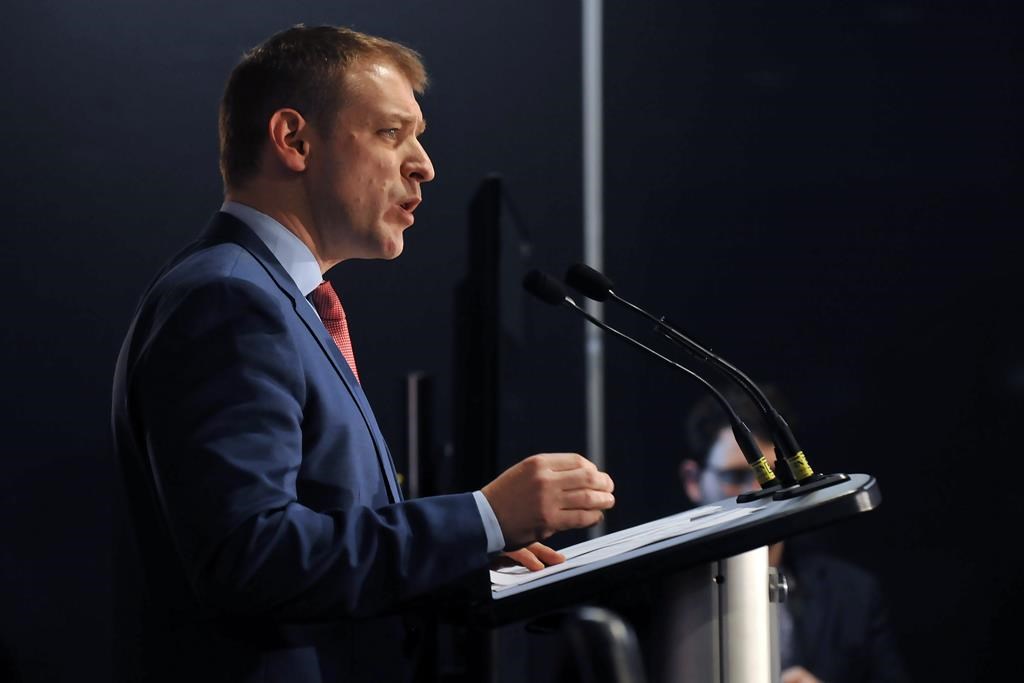There’s no way the Newfoundland and Labrador government can afford Husky Energy’s request for a massive oil project buy-in, Premier Andrew Furey said Monday.

“It’s time to start being honest,” he told reporters following the reopening of the provincial legislature.
The legislature resumed so the minority Liberal government could introduce a supply bill to keep operations running until a proper budget is passed later this month. But recent news that Husky Energy is considering axing its $2.2-billion West White Rose offshore oil project grabbed most of the attention.
The company says it’s reevaluating its operations in the province and is asking for a government buy-in on the project, which is already more than halfway finished. Several other offshore projects have been delayed indefinitely, including Equinor’s Bay du Nord project, slated to be the province’s first deepwater operation.
“The offshore is burning,” Opposition Leader Ches Crosbie told reporters after the legislature was dismissed.

Get weekly money news
Furey said the province simply can’t afford Husky’s asking price, though he couldn’t say how much it is. Deputy Premier and Finance Minister Siobhan Coady said the province was grappling with a $2.1-billion deficit – the second largest in its history.
The province has a five per cent equity stake in the West White Rose project, she said.
Furey said the province is in talks with Ottawa about help for the oil industry but that he’s had no indication the federal government could support a buy-in, either.

The new premier was elected Liberal leader in August, taking over for former premier Dwight Ball. Furey hasn’t yet won a seat in the legislature, so he was not on the floor fielding fiery questions about help for the oil industry from opposing members. Instead, that task fell to Coady.
As for the upcoming budget, set to be delivered Sept. 30, Coady said there won’t be any major surprises.
“There will be a lot of work that has to be done post-COVID to consider how we may ensure our financial stewardship and our financial success as a province is maintained,” she said. ” … But now is not the time.”
This report by The Canadian Press was first published Sept. 14, 2020.
- Winter storms, rain and snow wallopping Canada. Here’s where you’ll see it
- ‘We do not give in to terror’: Canadians voice support for Sydney Hanukkah shooting victims
- ‘Really challenging issue’: Many B.C. communities still at high risk for flooding
- Cold warnings across the Prairies forecast wind-chill temperatures near -45 C








Comments